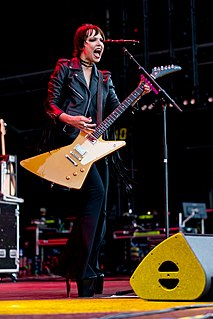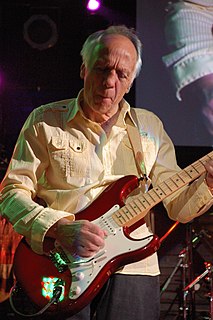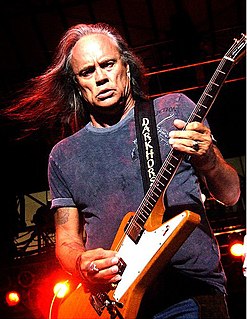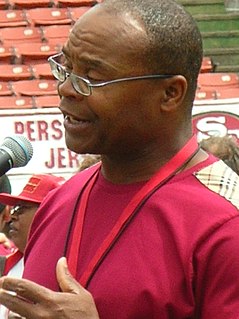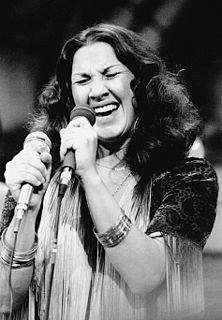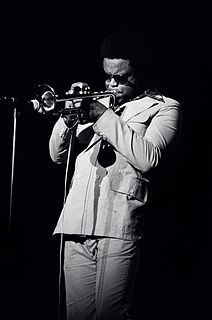A Quote by Henry Rollins
Miles Davis would have this lineup of all these amazing musicians and one day would just say, 'We're done.' After tons of great records and tickets sold, he said, 'Now I'm going to grow my hair out and play my horn through a wah-wah pedal.' Rather than play it safe, he went on.
Related Quotes
Well, I've heard a lot of people, but I think I would say a Brazilian musician named Hermeto Pascoal was one of my biggest influences. Through the years he mastered the keyboards. He use to play the organ Hammond B3, flute, saxophone, percussion and guitar. He is one of the most complete musicians that I ever met. Not too long after we came to the United States, Airto Moreira introduced him to Miles Davis, who recorded three of Hermeto's compositions on his album "Live Evil.
My hair grows into a fuzz ball - I just wanted it to grow downwards rather than outwards - but then I realized I couldn't play guitar with it that way. I couldn't do anything day-to-day without my hair getting in my mouth or my eyes or my food, so I just started tying it back, long before I knew what a man bun was.
In the old days when I first was coming up, you would turn up on set in the morning with your coffee, script, and hangover and you would figure out what you were going to do with the day and how you were going to play the scenes. You would rehearse and then invite the crew in to watch the actors go through the scenes. The actors would go away to makeup and costume and the director and the DP would work out how they were going to cover what the actors had just done.
Sometimes it's moments like that, real complicated moments, absorbing moments, that make you realize that even hard times have things in them that make you feel alive. And then there's music, and girls, and drugs, and homeless people who've read Pauline Kael, and wah-wah pedals, and English potato chip flavors, and I haven't even read Martin Chuzzlewit yet... There's plenty out there.
Miles Davis came in a couple of days and said, "Oh, man, I love that. Keep going." So he said, "Let me know when you need trumpet." And he came in, and he was sitting there, and I was very intimidated, because now he's going to play the trumpet on something that I wrote." He starts to play, and I go, "That's not right, but I don't know how to tell him it's not right." Finally he goes, "When are you going to tell me what to do?" He said, "This is your music. I know you know how it's supposed to sound. Stop fooling around. We don't have time."


